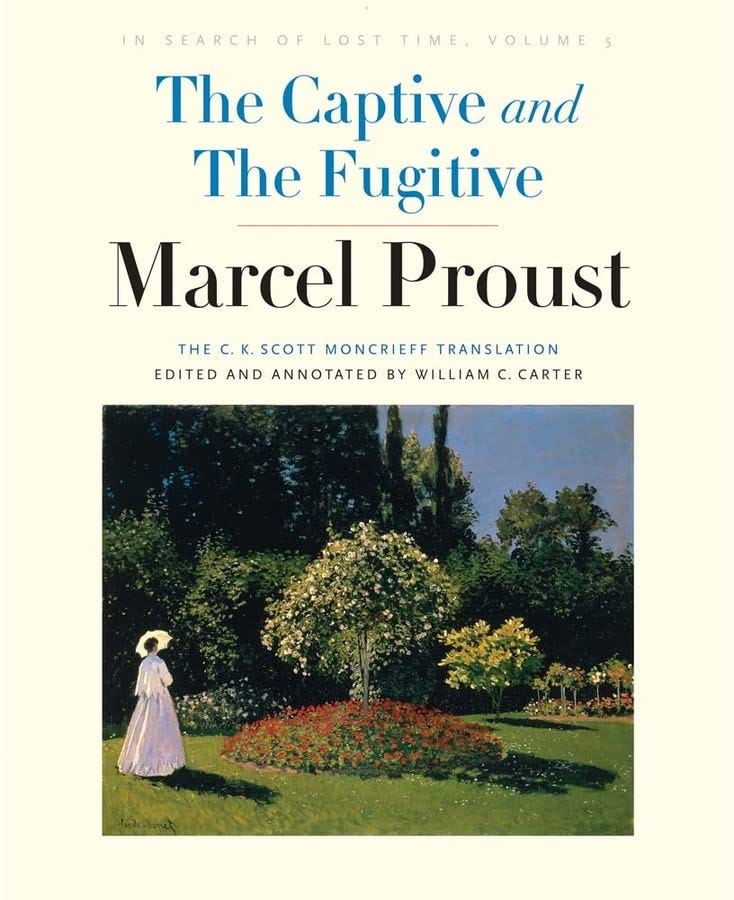Thoughts In and Out of Season 5
The annotated Proust, Proust on butterflies and girls, Paul's universalist language about Adam and Christ, the African Samurai, chatting with AI
1. Yale University Press occasionally produces handsome and impressive critical editions of certain great literary works—most notably, till recently, its splendid series of large volumes of Thoreau’s writings—in which scrupulously edited and pristinely presented original texts appear on the page bounded in a box, with notes running down the margins rather like a layer of Talmudic commentary. Nowhere has the format been used to happier effect, it seems to me, than in the recent volumes of Yale’s new edition of Proust’s In Search of Lost Time, of which the fifth and penultimate volume (comprising the fifth and sixth installments of the novel) has just appeared. It is not a new translation; it is the classic, very lovely, though somewhat problematic C.K. Scott Moncrieff rendering, newly edited, revised into better conformity with the current critical French edition of the text, and lavishly annotated by William C. Carter, Professor Emeritus of French at the University of Alabama at Birmingham, who certainly ranks high among the finest scholars of Proust in the English-speaking world today (I earnestly recommend both his Marcel Proust: A Life and his Proust in Love). Scott Moncrieff died young (from cancer, when he was only 40) and never had a chance to translate the concluding volume; the first English edition of the novel was completed by Stephen Hudson (the pen-name of Sydney Schiff), and that is no doubt the text Carter will use for the final volume of the Yale edition. When it is finished, the set as a whole will constitute a great gift to all Anglophone lovers of Proust. The Scott Moncrieff and Hudson version has been revised and reissued before, of course—first in 1981 by Terence Kilmartin, whose edition was then further revised by D.J. Enright in 1996—but Carter’s version is the one to get for those readers who want to understand every reference, every passing detail, every incidental feature of the text. The novel is an ocean, but no person, place, or thing—however obscure, minor, or seemingly extraneous—escapes the nets of his commentary. Clearly it is all a work of love for Carter, and a monument to a life of scholarly dedication to the French literary canon, and to Proust in particular.
Keep reading with a 7-day free trial
Subscribe to Leaves in the Wind to keep reading this post and get 7 days of free access to the full post archives.


